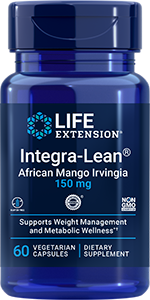- Science & Research
- Science News
- Newsletter
- 2012
- September 14

Newsletter
Newsletter
Dont Forget To Drink Your Green Tea
Don’t forget to drink your green tea
Friday, September 14, 2012. The journal Molecular Nutrition & Food Research published an article online on June 13, 2012 that suggests a beneficial effect on the brain for a polyphenol found in green tea known as epigallocatechin-3-gallate (EGCG). Yun Bai of the Third Military Medical University in Chongqing, China and colleagues cultured adult mouse hippocampal neural progenitor cells with varying concentrations of EGCG or no EGCG for 24 hours. "We proposed that EGCG can improve cognitive function by impacting the generation of neuron cells, a process known as neurogenesis," Dr Bai remarked. "We focused our research on the hippocampus, the part of the brain which processes information from short-term to long-term memory." A significant increase in the number of neural progenitor cells was determined in cultures that received higher amounts of EGCG. Similar findings were obtained upon examination of the dentate gyrus area of the brain in adult mice that were treated with the compound. The researchers then evaluated the effects of EGCG on memory and learning. "We ran tests on two groups of mice, one which had imbibed EGCG and a control group," Dr Bai explained. "First the mice were trained for three days to find a visible platform in their maze. Then they were trained for seven days to find a hidden platform." The team observed a reduction in the amount of time needed to find the hidden platform in mice that received EGCG. "Our results suggest that EGCG enhances learning and memory in 4-month-old mice as shown by improvements in object recognition and spatial memory," the authors conclude. "We have shown that the organic chemical EGCG acts directly to increase the production of neural progenitor cells, both in glass tests and in mice," Dr Bai stated. "This helps us to understand the potential for EGCG, and green tea which contains it, to help combat degenerative diseases and memory loss." The authors remark that "Based on previous safety and pharmacokinetic studies, it is likely that a daily 1500–1600 mg bolus of EGCG in humans would achieve physiological levels similar to those in the sera of EGCG-treated (20 mg/kg) mice. Oral doses of similar magnitudes have been used in clinical trials, although EGCG has not been administered to humans on a regular basis." "Green tea is a popular beverage across the world," Dr Bai noted. "There has been plenty of scientific attention on its use in helping prevent cardiovascular diseases, but now there is emerging evidence that its chemical properties may impact cellular mechanisms in the brain." | ||||||||||||||||||||||||||||||||||||||||
 | ||||||||||||||||||||||||||||||||||||||||
| ||||||||||||||||||||||||||||||||||||||||
 | ||||||||||||||||||||||||||||||||||||||||
| ||||||||||||||||||||||||||||||||||||||||
Phase 3™ is used under license. Integra-Lean® Irvingia is protected by U.S. Patent No. 7,537,790. Other patents pending. UC-II® is a registered trademark of InterHealth Nutraceuticals, Inc. U.S. Patent Nos. 5,645,851, 5,637,321, 5,529,786, 5,750,144, 7,083,820, 7,846,487, EP1435906 B1 and worldwide patents pending. | ||||||||||||||||||||||||||||||||||||||||
The latest news on aging, nutrition, and vitamins
- Probiotics and Antidepressants: Do They Work Together Through the Gut-Brain Axis?
- Fruits and Vegetables May Improve Sleep Quality, According to New Research
- Avocado Nutrition Facts: 10 Benefits for a Stronger, Healthier Body
- Can Gut Disorders and Vitamin Deficiencies Predict Alzheimer’s and Parkinson’s?
Lab
Testing
How Life Extension lab testing works








